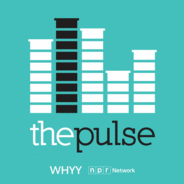You can feel it coming on — your face flushes hot, maybe your fists clench, your heartbeat speeds up and blood pressure rises. It's rage — and it can go from zero to red-hot in a matter of seconds. Best-case scenario, it disappears just as fast. Worst-case scenario — it completely takes over. It's normal to feel angry when you or somebody else has been wronged, mistreated, or hurt. But even justified rage can become destructive, like a wrecking ball ruining careers and relationships. So, how do we handle these fiery emotions when they erupt? On this episode — how to deal with anger and rage. We learn about healthy ways of expressing our ire; the rise of "rage rooms" and what psychologists have to say about them; and what causes toddlers to throw such terrible tantrums.Learn more about sponsor message choices: podcastchoices.com/adchoicesNPR Privacy Policy

Wissenschaft & Technik
The Pulse Folgen
Go on an adventure into unexpected corners of the health and science world each week with award-winning host Maiken Scott. The Pulse takes you behind the doors of operating rooms, into the lab with some of the world's foremost scientists, and back in time to explore life-changing innovations. The Pulse delivers stories in ways that matter to you, and answers questions you never knew you had.
Folgen von The Pulse
177 Folgen
-
Folge vom 16.02.2024All the Rage
-
Folge vom 09.02.2024The Mysteries of AttractionIt can show up as a spark or a lightning bolt; a glance or a touch; an easy rapport or butterflies in your stomach. Attraction — it's a feeling we know when we experience it, but we're often not sure exactly what fuels it. Is it about looks or personality? Psychology or chemistry? Instant fireworks or long-term compatibility? On this episode, we explore the mysteries of attraction — what kindles it, what kills it, and why we're often totally wrong about who we might be attracted to. We talk with a leading attraction researcher about the factors that determine attraction, and why he often advises people to follow their gut. We find out what dating apps — and the massive amounts of data they gather — are teaching researchers about who we're drawn to and why. And we hear the story of a couple whose mutual attraction changed over time — and why that turned out to be a good thing.Learn more about sponsor message choices: podcastchoices.com/adchoicesNPR Privacy Policy
-
Folge vom 02.02.2024Setting the Medical Record StraightMedical records are an important part of health care. They create a history of past issues, test results, and medications. They paint a picture of somebody's general health. Patients now have more access than ever before to their records, and these changes have come with some growing pains — like receiving test results straight from the lab, before their doctor can review them, or discovering mistakes. On this episode, we crack open those medical records to get a better sense of how they can help and hinder care. We'll hear about how physicians struggle to access different parts of the record to create a cohesive picture of a patient's health. We dig into issues around law enforcement accessing these records, and why they're so valuable to hackers.Learn more about sponsor message choices: podcastchoices.com/adchoicesNPR Privacy Policy
-
Folge vom 31.01.2024Inside Facebook: A Conversation with Jeff HorwitzAfter covering the 2016 U.S. presidential election, reporter Jeff Horwitz knew that "something really weird was going on," that social media sites, especially Facebook, had played a role in shaping the election. But how — exactly? In his new book, "Broken Code: Inside Facebook and the Fight to Expose Its Harmful Secrets," Horwitz details his chase to crack open this notoriously secretive black box that is Facebook. Host Maiken Scott talks to Horwitz about the powerful algorithms that favored engagement above all else, that not just amplified specific content, but started to shape everything from what we see, to what we post, to how politicians design their campaigns. Horwitz covers technology for The Wall Street Journal and was one of the reporters on the award-winning series "The Facebook Files."Learn more about sponsor message choices: podcastchoices.com/adchoicesNPR Privacy Policy
